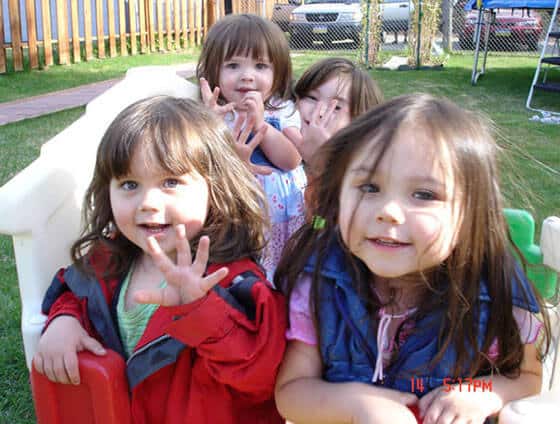 How do you learn to do most anything? You likely hear it, see it, touch it, or experience it, and often more than one time. It is the same with children when they are learning language. Children need to experience print-rich environments that appeal to their senses—sight, hearing, and touch—and they need to experience them often.
How do you learn to do most anything? You likely hear it, see it, touch it, or experience it, and often more than one time. It is the same with children when they are learning language. Children need to experience print-rich environments that appeal to their senses—sight, hearing, and touch—and they need to experience them often.
You are your child’s first and most important teacher. Talking and communicating are your number one teaching tools for helping your child learn to speak, read, and write.
Tips to Support Language Development
- Toddlers who were spoken to often when they were infants have bigger vocabularies and a solid base for later communications. Watch Video
- Talk to your children. It is one of the most important things you can do to build their language skills. Speak “parentese,” a high-pitched, more animated way of speaking. Babies tune in and learn from it. Dr. Patricia Kuhl, in a 2010 talk at UAA, elaborated on this. Watch Video
- Talk, laugh, sing, and play peek-a-boo. Toddlers who were frequently spoken to as infants have bigger vocabularies and a solid basis for later communication.
- Exercise! Increased physical activity is closely linked to language and cognition development
- Have your child tell YOU a story. You’ll be amazed at what he recalls from your many reading sessions together.
- Combine cuddling, talking, playing, and exercising with your child all at once. While carrying your infant or toddler, walk along and say, “We’re walking, we’re walking, we’re walking, and we STOP!” The more suddenly you stop, the more giggles you’ll get.
- Describe what you see. “This is a fish. See, it has a head and a tail. Do you have a tail? No, but you have a head, don’t you.”
- Ask opened-ended questions. This encourages dialogue and helps your child to feel “safe” talking with you, without fear of being criticized.
- Verbal Development (English & Spanish) – Verbal development matters because language and communication are critical for social development and learning.
- Emergent Literacy (English & Spanish) – Emergent literacy matters because it forms the foundation for future learning, important for success in school and beyond.
- Letters and Symbols are Everywhere – Learning that symbols and printed letters have meaning is an important early learning skill.
- Word Wise – Practice with words helps your child get read to later read and write.
- Building Literacy Skills Every Day – PBS Parents provides some simple games and activities that can make these everyday chores more fun for you and your child. At the same time, you will support your child’s language and literacy skills and build the foundation for reading and writing.

